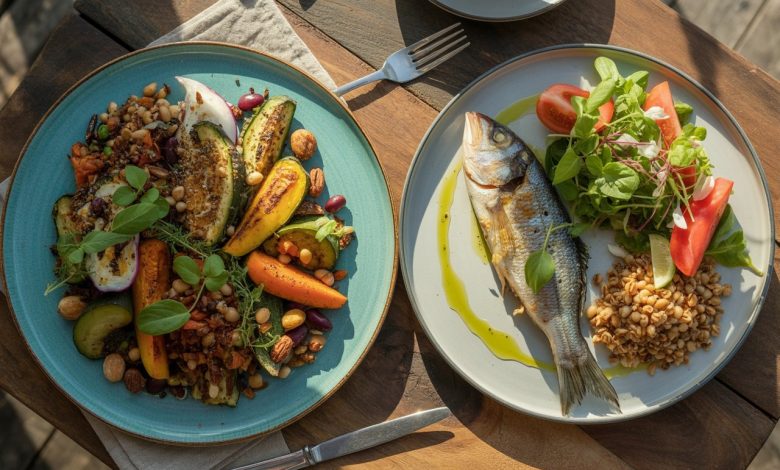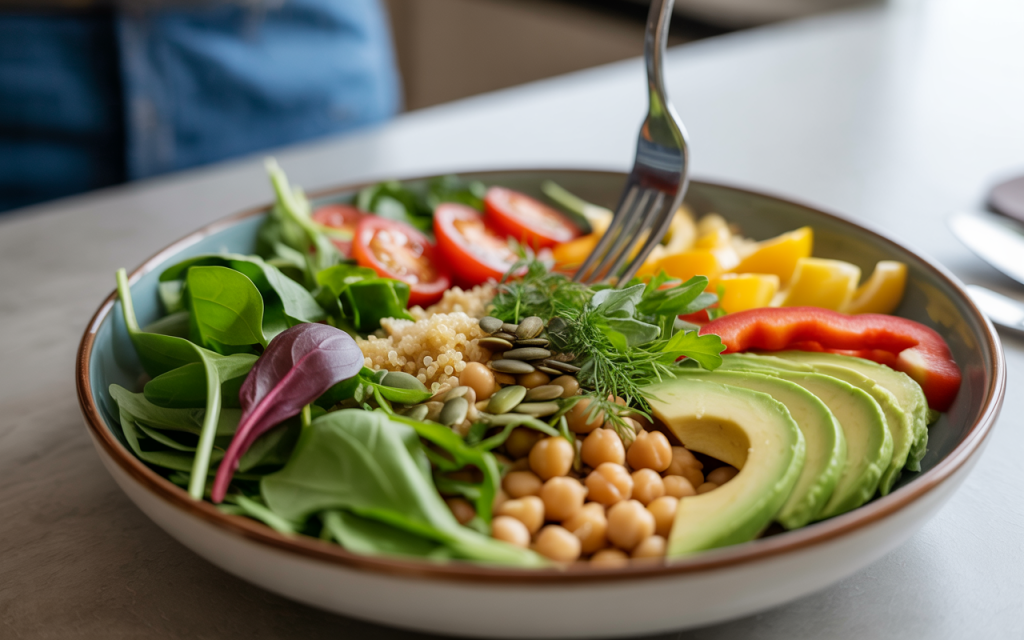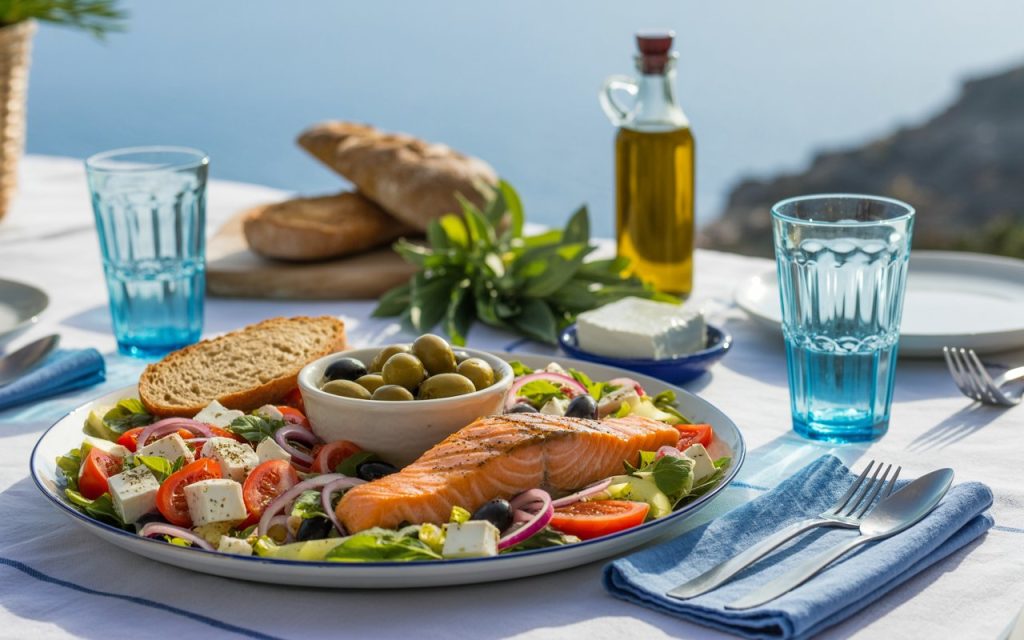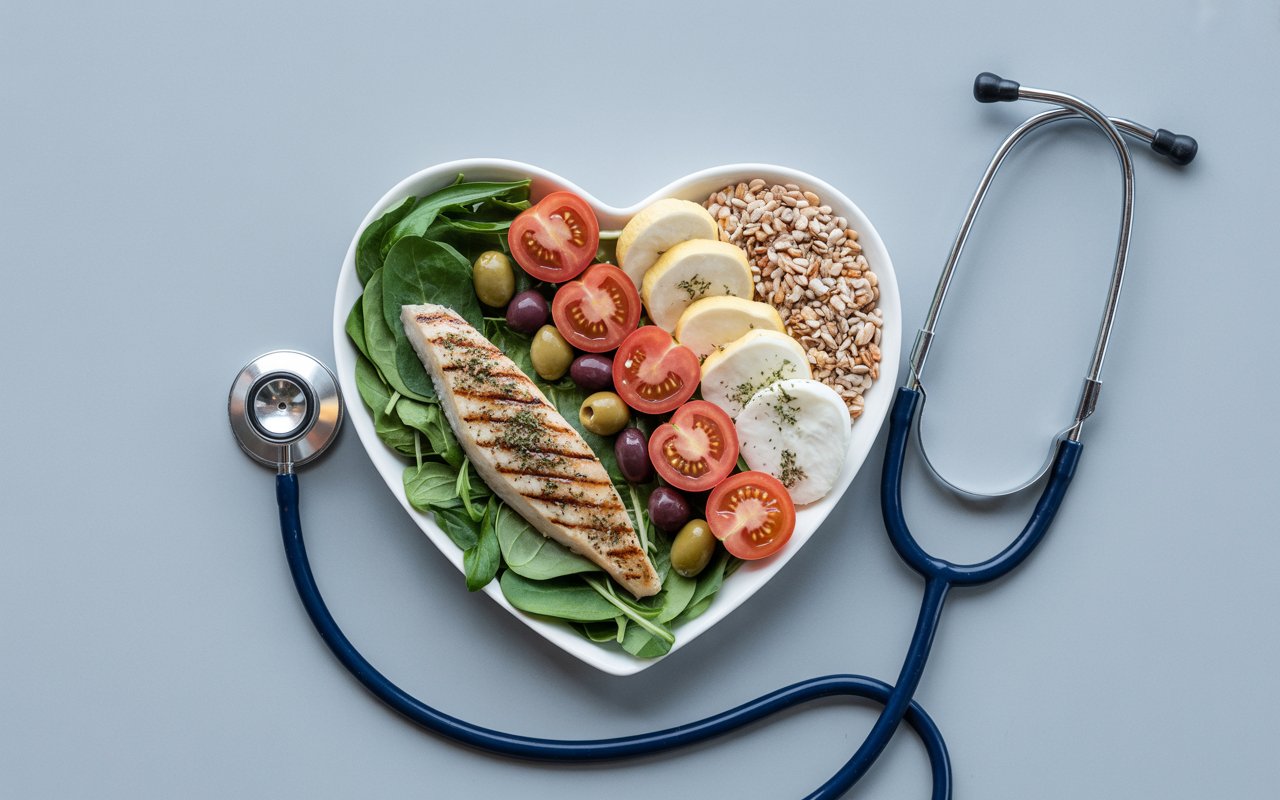Plant-Based Diet vs. Mediterranean: Powerful Choice
Healthy Eating Showdown: Plant-Based and Mediterranean Diets Compared

Plant-based diet and Mediterranean diet are two of the most popular healthy eating plans in the world. Both are praised for their health benefits, but which one is better for you? This article will explain what each diet is, how they work, their benefits and risks, and help you decide which might be best for your lifestyle—all in simple, easy-to-understand language.
What Is a Plant-Based Diet?
A plant-based diet means eating mostly foods that come from plants. This includes:
- Fruits and vegetables
- Whole grains (like brown rice, oats, and quinoa)
- Nuts and seeds
- Beans and lentils
- Plant oils (like olive oil and avocado oil)
Some people on a plant-based diet eat small amounts of animal products, but many eat only plants. A strict plant-based diet is called vegan, which means no meat, eggs, or dairy.

What Is the Mediterranean Diet?
The Mediterranean diet is inspired by the traditional eating habits of people in countries around the Mediterranean Sea, like Italy, Greece, and Spain. The diet focuses on:
- Lots of fruits and vegetables
- Whole grains
- Olive oil as the main fat
- Fish and seafood (at least twice a week)
- Poultry, eggs, and dairy (in moderation)
- Red meat and sweets (only sometimes)
- Nuts and seeds
- Herbs and spices instead of salt

How Do These Diets Compare?
Both the plant-based diet and the Mediterranean diet are healthy choices. They both focus on whole foods and limit processed foods, sugar, and unhealthy fats. But there are some key differences:
- Animal products: The Mediterranean diet includes fish, poultry, eggs, and dairy, while a strict plant-based diet does not.
- Fat sources: Both diets use healthy fats like olive oil, but the Mediterranean diet also gets fat from fish and dairy.
- Protein sources: The Mediterranean diet gets protein from fish, poultry, and dairy, while a plant-based diet gets protein from beans, lentils, nuts, and seeds.
Table: Plant-Based vs. Mediterranean Diet
| Feature | Plant-Based Diet | Mediterranean Diet |
|---|---|---|
| Main foods | Plants only | Plants, fish, poultry, dairy |
| Animal products | Little or none | Moderate |
| Healthy fats | Olive oil, nuts, seeds | Olive oil, fish, dairy |
| Protein sources | Beans, lentils, nuts, seeds | Fish, poultry, beans, dairy |
| Processed foods | Limited | Limited |
| Sugar and sweets | Limited | Limited |
| Red meat | None | Rare |
Health Benefits of a Plant-Based Diet
A plant-based diet has many health benefits:
- Lower risk of heart disease: Eating more plants and less meat can help your heart stay healthy.
- Lower risk of type 2 diabetes: Plant foods are high in fiber and low in unhealthy fats, which can help control blood sugar.
- Weight loss: Many people lose weight on a plant-based diet because plant foods are lower in calories and higher in fiber.
- Better digestion: The fiber in plant foods helps your digestion and keeps your gut healthy.
- Lower risk of some cancers: Eating more fruits and vegetables may lower your risk of certain cancers.

Health Benefits of the Mediterranean Diet
The Mediterranean diet is also very healthy:
- Lower risk of heart disease: The diet is rich in healthy fats from olive oil and fish, which are good for your heart.
- Longer life: People who follow the Mediterranean diet often live longer and have fewer chronic diseases.
- Lower risk of type 2 diabetes: The diet’s focus on whole foods and healthy fats helps control blood sugar.
- Weight loss: Many people lose weight and keep it off with the Mediterranean diet.
- Better brain health: The diet may help protect your brain as you age and lower the risk of dementia.

Risks and Challenges
Both diets are safe for most people, but there are some things to watch out for:
Plant-Based Diet
- Nutrient deficiencies: If you don’t plan carefully, you might not get enough vitamin B12, iron, calcium, or omega-3 fats. You may need to take supplements or eat fortified foods.
- Protein: You need to eat a variety of plant proteins to get all the amino acids your body needs.
- Social and practical challenges: Eating out or at friends’ houses can be harder if you don’t eat animal products.
Mediterranean Diet
- Cost: Fresh fish, olive oil, and nuts can be expensive in some places.
- Time: Preparing fresh meals takes more time than eating processed foods.
- Portion control: Even healthy foods can cause weight gain if you eat too much.
Which Diet Is Better for Weight Loss?
Both diets can help you lose weight if you eat the right portions and avoid processed foods. The plant-based diet is often lower in calories, but the Mediterranean diet is also effective for weight loss if you focus on whole foods and healthy fats.
Which Diet Is Better for Heart Health?
Both diets are excellent for heart health. The plant-based diet lowers cholesterol and blood pressure by cutting out animal fats. The Mediterranean diet lowers heart disease risk with healthy fats from olive oil and fish. Both are among the best diets for your heart.

Which Diet Is Easier to Follow?
This depends on your lifestyle and preferences:
- Plant-based diet: Easier if you enjoy cooking, like trying new foods, and want to avoid animal products.
- Mediterranean diet: Easier if you like a variety of foods, including fish and dairy, and enjoy Mediterranean flavors.
How to Get Started
Plant-Based Diet
- Start with small changes: Add more fruits, vegetables, and whole grains to your meals.
- Try meatless meals: Have one or two days a week without meat.
- Experiment with plant proteins: Try beans, lentils, tofu, and nuts.
- Plan your meals: Make sure you get enough nutrients, especially vitamin B12, iron, and calcium.
Mediterranean Diet
- Use olive oil: Cook with olive oil instead of butter or other fats.
- Eat more fish: Aim for at least two servings of fish or seafood each week.
- Add more vegetables: Fill half your plate with vegetables at every meal.
- Choose whole grains: Pick brown rice, whole wheat bread, and quinoa instead of white bread and pasta.
- Limit red meat and sweets: Save these for special occasions.

Real-Life Examples
- Sarah switched to a plant-based diet and lost 20 pounds. She feels more energetic and her cholesterol improved.
- Tom started the Mediterranean diet and noticed his blood pressure went down. He enjoys cooking with olive oil and fresh herbs.
- Lisa tried both diets and found the Mediterranean diet easier to follow because she likes fish and cheese.
Frequently Asked Questions (FAQs)
Q: What is a plant-based diet?
A: A plant-based diet means eating mostly foods that come from plants, like fruits, vegetables, grains, nuts, and seeds.
Q: What is the Mediterranean diet?
A: The Mediterranean diet is based on the traditional foods of countries around the Mediterranean Sea. It includes lots of fruits, vegetables, whole grains, olive oil, fish, and some dairy and poultry.
Q: Which diet is better for weight loss?
A: Both diets can help you lose weight if you eat healthy foods and watch your portions.
Q: Which diet is better for heart health?
A: Both diets are excellent for heart health. The plant-based diet cuts out animal fats, and the Mediterranean diet includes healthy fats from olive oil and fish.
Q: Is it hard to get enough protein on a plant-based diet?
A: No, as long as you eat a variety of plant proteins like beans, lentils, nuts, and seeds.
Q: Do I need to take supplements on a plant-based diet?
A: You may need to take vitamin B12 and sometimes iron or omega-3 supplements, especially if you don’t eat animal products.
Q: Is the Mediterranean diet expensive?
A: It can be, because fresh fish, olive oil, and nuts are sometimes pricey. But you can save money by buying in bulk and cooking at home.
Q: Can I eat out on these diets?
A: Yes, but it may be easier with the Mediterranean diet, since most restaurants offer fish and vegetable dishes. Plant-based options are becoming more common.
Q: Which diet is better for the environment?
A: The plant-based diet is usually better for the environment because it uses fewer resources and produces less pollution than diets with a lot of animal products.
Q: Can I combine both diets?
A: Yes! Many people enjoy a mostly plant-based diet with some fish and olive oil, which combines the best of both.
How to Choose the Right Diet for You
Think about your lifestyle, health goals, and food preferences:
- Choose a plant-based diet if you want to avoid animal products and focus on plants.
- Choose the Mediterranean diet if you enjoy a variety of foods, including fish and dairy, and want a flexible, balanced approach.
- Try both and see which one you like best!

Combining Both Diets
You don’t have to choose just one. Many people mix the best parts of both diets—eating mostly plants, with some fish, olive oil, and dairy. This can give you the health benefits of both plans.
The Role of Exercise
No matter which diet you choose, regular exercise is important for good health. Try to be active most days of the week.
The Importance of Whole Foods
Both diets focus on whole, unprocessed foods. This means less sugar, salt, and unhealthy fats, and more vitamins, minerals, and fiber.
The Impact on the Environment
A plant-based diet is usually better for the planet because it uses less water, land, and energy than diets with a lot of animal products. The Mediterranean diet is also better for the environment than a typical Western diet, but not as good as a strict plant-based diet.
How to Stay Motivated
Here are some tips to stick with your new diet:
- Set realistic goals: Start with small changes and build up.
- Find recipes you enjoy: Try new foods and flavors.
- Cook with friends or family: Make healthy eating fun.
- Track your progress: Keep a food diary or use an app to see how you’re doing.
- Celebrate your successes: Reward yourself for sticking to your plan.

Common Mistakes to Avoid
- Eating too many processed foods: Even plant-based or Mediterranean foods can be unhealthy if they’re processed or full of sugar and salt.
- Not planning meals: Plan ahead to make sure you get all the nutrients you need.
- Not drinking enough water: Stay hydrated for good health.
- Ignoring portion sizes: Even healthy foods can cause weight gain if you eat too much.
The Future of Healthy Eating
Both the plant-based diet and the Mediterranean diet are likely to stay popular as more people learn about their health benefits. New research may help us understand even more about how these diets can keep us healthy and happy.

Summary Table: Plant-Based vs. Mediterranean Diet
| Feature | Plant-Based Diet | Mediterranean Diet |
|---|---|---|
| Main foods | Plants only | Plants, fish, poultry, dairy |
| Animal products | Little or none | Moderate |
| Healthy fats | Olive oil, nuts, seeds | Olive oil, fish, dairy |
| Protein sources | Beans, lentils, nuts, seeds | Fish, poultry, beans, dairy |
| Processed foods | Limited | Limited |
| Sugar and sweets | Limited | Limited |
| Red meat | None | Rare |
| Heart health | Excellent | Excellent |
| Weight loss | Effective | Effective |
| Environmental impact | Very good | Good |
Conclusion
Both the plant-based diet and the Mediterranean diet are healthy choices that can help you feel better, lose weight, and reduce your risk of chronic diseases. The best diet for you depends on your preferences, lifestyle, and health goals. Try both, see which one you like best, and enjoy the journey to better health!




